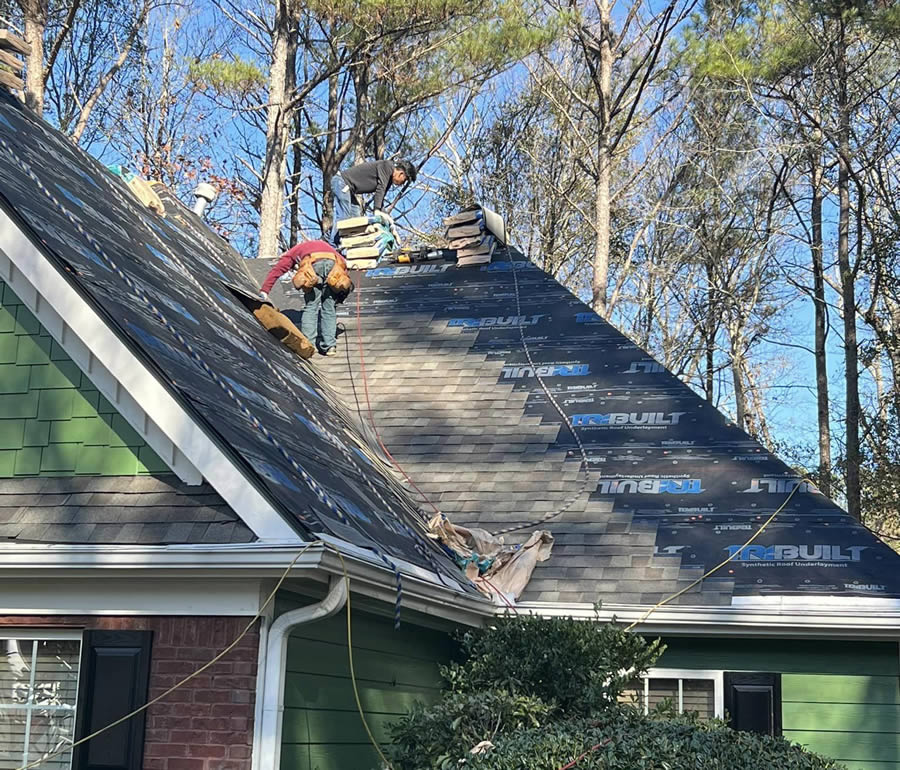
When it comes to maintaining your home, your roof is one of the most important components to keep in good condition. However, all roofing materials are not created equal—especially when it comes to repair costs and ease of maintenance. Whether you're dealing with a minor leak or a full section of damage, some materials are far more forgiving than others. Knowing which roofing types are easier and cheaper to fix can help homeowners make smarter choices during installation or roof repair. If you're unsure where to start, your local roofers at Milledge Roofing Company can help guide you through the best options.
Asphalt shingles are by far the most popular roofing material in the United States, and with good reason. They’re budget-friendly, widely available, and relatively simple to install or replace. For homeowners, this means repairs are generally quick and cost-effective.
If a few shingles blow off or crack, a professional can usually replace them without disturbing the rest of the roof. This makes asphalt shingles an ideal choice if you’re concerned about the long-term costs of roof repair. Plus, many roofing companies stock asphalt shingles in a variety of colors and styles, making it easy to match existing shingles.
Metal roofs are known for their long lifespan and resistance to extreme weather. They’re less likely to suffer damage in the first place, but when repairs are needed, they can be more complicated and costly.
If a panel becomes loose or rusts through, you may need to replace an entire section instead of making small patch repairs. This often requires a skilled roofer with experience in metal roofing, which may increase labor costs. However, due to their durability, repairs are infrequent—so the long-term investment may still be worth it.
Clay and concrete tiles are popular for their longevity and resistance to fire and insects. They also offer a distinctive, elegant look that enhances curb appeal. However, these tiles can crack or break under pressure, such as from falling branches or even foot traffic.
Repairing tile roofs typically requires specialized tools and techniques. Matching the exact color and texture of older tiles can also be a challenge. Although individual tiles can be replaced, the labor cost is often higher, and if the underlayment is damaged, a more extensive roofing replacement may be needed.
Wood shingles and shakes offer a natural, rustic appearance that many homeowners love. But they require regular upkeep to prevent issues like rot, mold, and insect infestation. When it comes to roof repair, wood can be relatively simple to replace one piece at a time—but the costs can add up over time due to frequent maintenance needs.
If moisture penetrates the wood or moss begins to grow, it can spread quickly and compromise the structure. That’s why working with an experienced roofing company for periodic inspections and treatments is key to keeping wood roofs in good condition.
Slate roofing is known for its beauty and exceptional durability, with some roofs lasting over 100 years. However, slate is one of the most expensive materials to install and repair. The tiles are heavy, brittle, and require specialized skills to fix.
While individual slate tiles can be replaced, it’s not a job for the average handyman. Homeowners will need to hire specialized roofers who are familiar with slate and have access to matching materials. For this reason, slate is often considered a high-end option, not ideal for budget-conscious homeowners.
When choosing a roofing material, consider not only the installation costs but also the long-term expense of maintenance and roof repair. Asphalt shingles are typically the easiest and most affordable to fix, while materials like slate and clay, though durable, can be costly when repairs are needed.
Whatever material you choose, partnering with a reliable roofing company ensures your roof receives proper installation and care. Regular inspections and timely repairs by skilled roofers at Milledge Roofing Company can extend the life of your roof and save you from the high cost of premature roofing replacement.